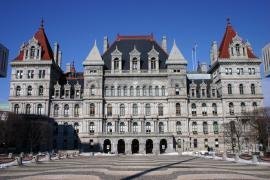
Educators are invited to discover new ways to use the region’s special places to teach about controversy and decision making at In Conflict Crises: Teaching the Hudson Valley from Civil War to Civil Rights and Beyond. Registration is now open for THV’s annual institute, July 24-26, at the Franklin D. Roosevelt Home and Presidential Library in Hyde Park.
This year’s opening talk, Keep Your Eyes on the Prize: Controversy and Connection in the Classroom of Life, will feature Kim and Reggie Harris, musicians, storytellers, educators, and interpreters of history. Accepting THV’s invitation they wrote, “Our nation’s history is filled with conflict, opposition, controversy, and crisis, but is also rich in perseverance, collaboration, determination, and compromise. We look forward to reflecting on ways to use these realities to prepare students to be thinkers and problem solvers.”
During the institute, more than 15 workshops will connect educators with historians, writers, and scientists, as well as their colleagues from schools, parks, and historic sites throughout the Valley. Topics include
Evaluating Scientific Claims (Cary Institute), Using ELA Common Core to Teach Controversy (Lewisboro Elementary School teachers), and Irrepressible Conflict: The Empire State and the Civil War, (New York State Museum).
On day 2 of the institute participants will choose one of six in-depth field experiences at Columbia County History Museum (Kinderhook), Eleanor Roosevelt National Historic Site and FDR Presidential Library (Hyde Park), Fishkill Depot, Katherine W. Davis River Walk Center (Sleepy Hollow), Mount Gulian Historic Site (Beacon), or Palisaides Interstate Park.
You can find out more about the program online.
Photo: Eleanor Roosevelt National Historic Site, courtesy Bill Urbin, Roosevelt-Vanderbilt National Historic Sites, National Park Service.
 The recent posts on the role of the municipal historians and the Path through History project have touched a nerve, several actually, as reflected in the emails I have received. Great!
The recent posts on the role of the municipal historians and the Path through History project have touched a nerve, several actually, as reflected in the emails I have received. Great!





